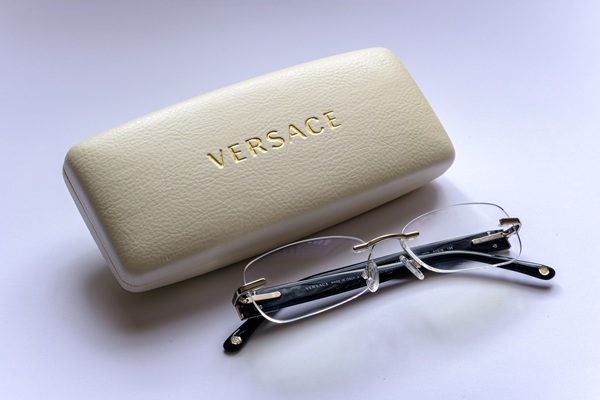Tips for Choosing Designer Eyewear Frames

For some people, designer eyewear is an essential item that they transform into a style. These are the fashionable ladies and gentlemen who decide that contact lenses are often not worth the trouble. In fact, some people who treat eyewear as a necessity do not need to wear them at all but still appreciate the aesthetic appeal.
With so many options on the market though, it can be difficult to choose the right frames. No one wants to walk out of the store only to try on a friend’s frames and feel like theirs would have been a better deal. Here are some tips for how to choose the best designer eyewear frames.
The aesthetics
One of the most important factors that goes into purchasing eyewear is appearance. The wearer needs to know that not only will it look good for work, play, and possibly even sports, but it also needs to complement facial features or a particular style.
Frame type
The obvious starting point when choosing frames is the type of frame, which tends to vary by thickness. Which one a person chooses ultimately comes down to personal preference and style. The most common types include the following:
- Full rim
- Semi-rimless
- Totally rimless
Complementing facial types
Fashionistas who specialize in designer eyewear often give advice on frame types based on the shape of the face. The general advice is that round faces should stick to rectangular and other angular frames while avoiding round frames. Not surprisingly, square-shaped faces then benefit more from circular, oval, or aviator frames. People with oval-shaped faces are the luckiest, as any frame may work.
The right color
People wear eyewear for different reasons, so it is important to consider how permanent and unchangeable these may be. For instance, wearers typically only change prescription lenses once every year or two, so picking a neutral color is often best. For glasses reserved for the beach, special occasions, hiking, or driving, pick a color that complements the skin tone and wardrobe palette.
The economics
As beautiful as any pair of glasses may be, there are also economic factors that affect decisions. While designer frames tend to be expensive, costs may still vary from a hundred dollars to several thousand based on brand and design.
Actual dollar value
For most consumers, the actual dollar value is most important. People tend to begin the purchasing journey knowing exactly what the upper limit of the budget is. That said, sometimes more expensive and striking options catch the eye. It is important to stay within budget. This may help consumers to walk out with two or three great-quality frames instead of just one.
A company’s social responsibility
Millennials are officially the largest population in the United States and the largest consumer group. In addition to this, millennials are big cause-related spenders. If this describes you, be sure to check out a company’s philanthropic involvements — and potential scandals — before selecting a frame.
Designer eyewear frames vs. traditional eyeglasses
Choosing between designer eyewear frames and traditional eyeglasses can be a challenge. Here are some tips to help you decide.
Design and aesthetic appeal
The most notable difference between traditional eyeglass frames and designer frames is not just the overall aesthetic appeal; there are noticeable differences in the quality of designer frames. In addition, the customization options with designer frames are endless, and you can ensure they are just the way you desire, personalizing the frame type, color, and much more.
Durability
Designer frames are also, on average, far more durable than traditional eyewear frames. Although it is important to store them properly and ensure they are not misplaced, designer eyewear can withstand damage in a much more reliable manner.
Cost
The primary reason more people do not choose designer eyewear frames over traditional frames is that they fear the cost is simply too much. Designer frames do cost more. However, as discussed, they are also far more durable and provide significantly more aesthetic value.
Customization time
If you choose to customize your designer eyewear frames, then it can take some time for the customization to happen, whereas the frames for traditional glasses are ready right away. Of course, temporary glasses (or your backup pair) can be worn in the meantime while you are waiting for your designer eyewear frames to be designed.
Choose your designer eyewear frame
Purchasing new eyewear can be an exciting experience. Some people look forward to changing out prescription glasses every year, while others enjoy adding to an existing collection. Whatever the reason for the purchase, these tips may help consumers to hone in on one or two frames from a sea of options.
Request an appointment here: https://www.texasoptical.net or call Texas Optical at (214) 771-7333 for an appointment in our Dallas office.
Check out what others are saying about our services on Yelp: Read our Yelp reviews.
Recent Posts
The selection of eyewear feels significantly easier when the styles and craftsmanship of Versace eyewear enters the conversation, since bold lines and iconic detailing create an instantly recognizable look. Versace represents the intersection of Italian fashion and Greek mythos, blending confident glamour with symbolism through its signature Medusa logo. The brand is widely associated with…
Many people who work in construction or laboratories wear safety glasses to protect their eyes during the day. However, keeping your eyes safe extends beyond hazards in the workplace. There is a wide variety of household chores and hobbies for which you should wear eye protection. When used consistently, safety glasses help create a safer…
Transitions lenses combine style and convenience to support clear vision without switching between regular glasses and sunglasses. While they were often considered unfashionable in days past, times have certainly changed. Today, transition lenses can be fashionable, chic, and a reflection of your personal style. When designing a pair for you, an optometrist will look at…
Dry eye treatment is important when occasional irritation becomes ongoing discomfort that interferes with daily activities. Many individuals experience dryness, burning, or a gritty feeling in the eyes from time to time. However, when symptoms start to affect reading, screen use, or time outdoors, a structured approach to diagnosis and care helps protect comfort and…


